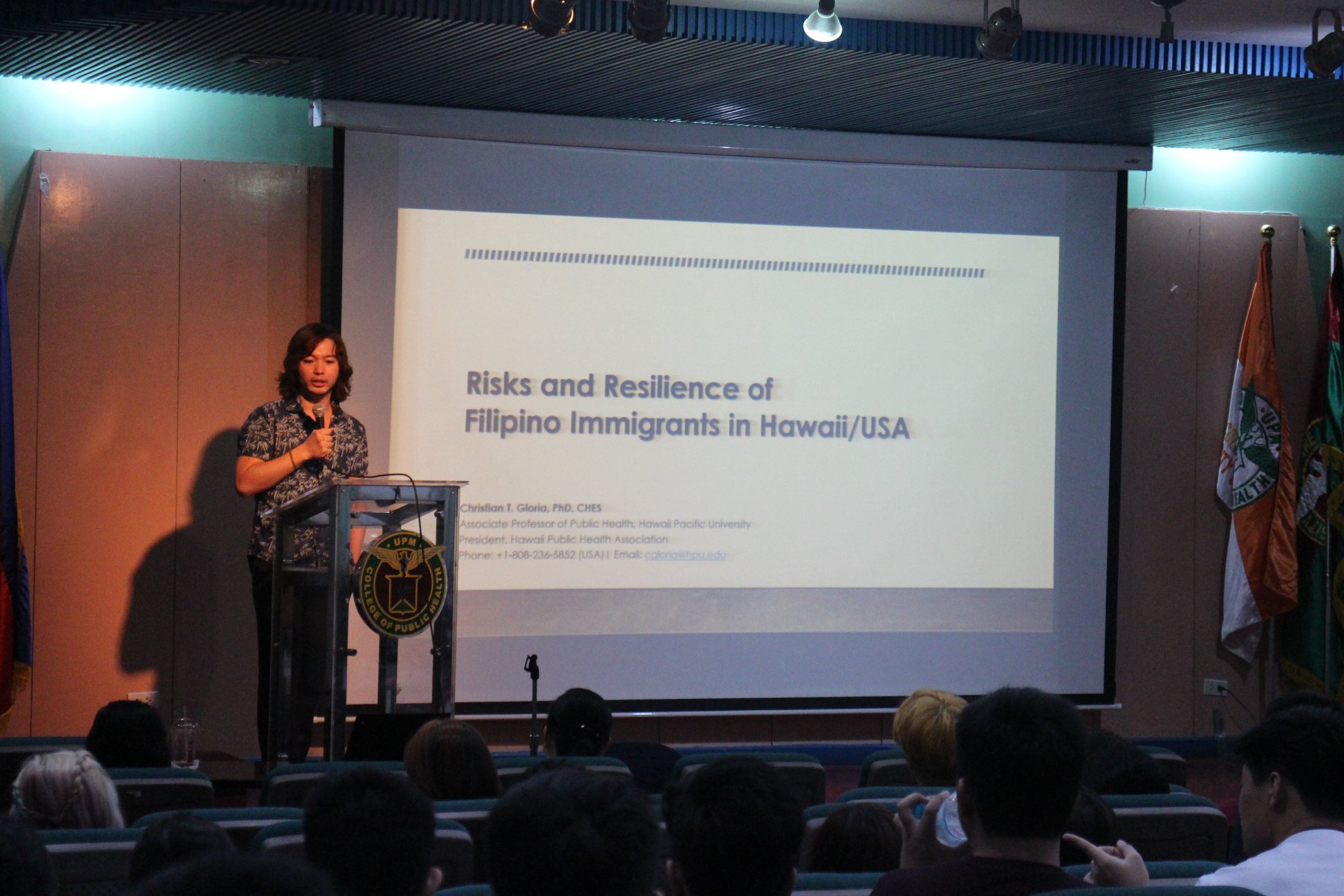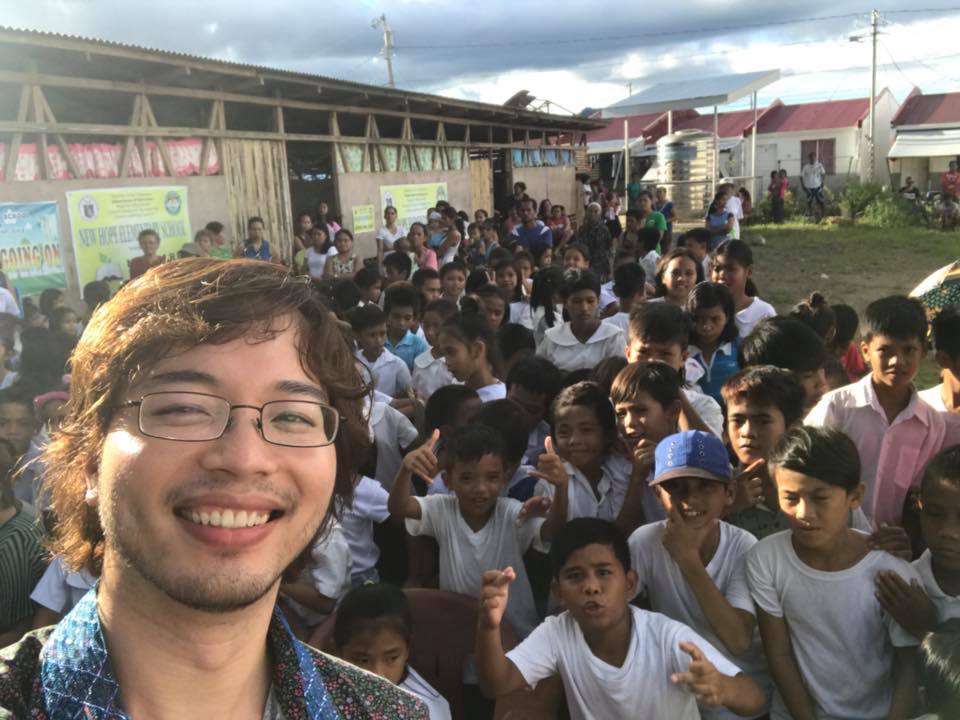The coronavirus, not even a living thing, has transformed how the world works. Technically, all homes now are quarantine facilities. Since the start of the coronavirus pandemic in March, isolation became the new norm, with strict social distancing and “stay at home” policies, being critical to protect our physical health from a public health emergency.
But this might be taking a toll on our mental health, warns Balik Scientist Dr. Christian Gloria: “The COVID-19 pandemic is the initial crisis, followed by the economic crisis, and—now—we are beginning to see the coming wave of the mental health crisis as a consequence of the first two. At this point, the primary source of stress and anxiety—aside from the pandemic—is the question of “how will we survive through the quarantines, lockdowns, and joblessness for however long this will last?”
Being a public health expert himself, Dr. Gloria sees that it is critical to include mental health as part of public health response. This means that a holistic approach in responding to a health crisis is not a choice but a necessity, as cases of mental health disorders continue to spike along with the surge of COVID-19 infections worldwide.
“Many people and families are without enough income, food, shelter, financial assistance, and healthcare for over three months. Everyday, we have been worrying about yesterday, today, tomorrow, and the uncertainties of when these struggles will end. These incredibly challenging times are chronically stressful, and it is well known in research that chronic stress significantly contributes to the development of mental health problems such as anxiety and depression disorders,” he added.
“The good news is that this coming wave of mental health crisis is preventable, and one sure way of achieving that is for the government and other abled organizations to help the people meet their said needs. Enable people to survive these trying months by simply providing enough food, water, and funds, and we will effectively prevent many health problems from arising—mentally, physically, and socially.”
“People are struggling [with mental health] and we need to help them. But before we can help them, we need data in order to understand where we are now and what programs and services are needed to ensure a healthy and bright future for all,” Dr. Gloria emphasized. This is his impetus for conducting mental health research in the Philippines, as part of his Balik Scientist engagement with the Department of Science and Technology-Philippine Council for Health Research and Development (DOST-PCHRD).
Curious about how mental health research is like through the lens of a public health expert, our team had the opportunity to discuss with Dr. Gloria on how we can communicate mental health with our audiences. Dr. Gloria let us in on his own insights, experiences, and personal thoughts, through another feature story which will be prepared by our expert himself. For now, let us get to know Dr. Christian Gloria.
Specializing in health behavior
Dr. Gloria is currently the Department Chair and Associate Professor of Public Health at Hawaii Pacific University (HPU). He earned his PhD, specializing in Health Behavior and Health Education, from The University of Texas at Austin in 2013. Four years prior, he obtained his Master’s degree in Health Education from the same University.
He relocated to Hawaii to “pursue his life’s calling of teaching, conducting research, and providing public health services in Asia and the Pacific.” Some of the courses he is currently teaching are related to public health research and communication, risk and resilience, health behavior theories, and public health program planning and leadership.
Dr. Gloria has also led various public health organizations in Hawaii. In 2017, he became the first Filipino-citizen to be elected as the President of the Hawaii Public Health Association (HPHA) since its founding in 1945. HPHA is one of the largest chapters of the American Public Health Association. He is currently the Vice-Chair of the Faculty Assembly at HPU’s College of Health & Society, which houses undergraduate and graduate programs in Nursing, Public Health, Social Work, and Physical Therapy. Many students from these programs are Filipino-Americans. He received the Progress Award for Education from the United Filipino Council of Hawaii in 2017 and was also recognized as the 2018 Friend of Social Work by the Hawaii Chapter of the National Association of Social Workers.
The research journey
In 2018, Dr. Gloria collaborated with Angeles University Foundation (AUF) in Angeles City, Pampanga, where he also became an Adjunct professor and worked as consultant for the Commission on Higher Education (CHED)-funded project Mental Health Across Ages: Identifying Issues and Trends in Pampanga. His research with AUF generated baseline data on mental health concerns, which will become the basis for the development and establishment of a mental health care program in Pampanga.
A year after, he became a DOST-PCHRD Balik Scientist which allowed him to share more of his expertise to the country. Currently, he is involved in three mental health research projects in the Philippines, one of which is a study about the mental health of healthcare workers amid the COVID-19 health crisis.
Dr. Gloria also published several research publications on various topics under public health, risk and resilience, and mental health in collaboration with other experts on health-related fields. One of the research projects he is currently working on is about identifying the mental health issues and trends across ages in Pampanga.
Among Dr. Gloria’s hobbies are practicing yoga, learning to play the ukulele, reading in coffee shops, and watching shows on Netflix.
--
In an article published online, experts warned that the pandemic may lead to behavioral problems and mental illnesses, as COVID-19 is described to be a “traumatic event” that everyone is experiencing.
With plans to delve deeper into mental health research discussions, we are preparing another feature story about mental health research experiences authored by Dr. Gloria himself. We are also inviting everyone to participate in our online poll in DOST-PCHRD’s Facebook and Twitter pages, to determine which mental health-related topics are mostly preferred by our stakeholders for our future mental health communication campaigns.
Stay updated for future stories in our online channels here.
--
The Balik Scientist Program
The Balik Scientist Program (BSP) is the brain gain initiative of the government which aims to tap into the ingenuity and expertise of Filipinos abroad to strengthen the S&T capabilities of local researchers in the academe, public and private sectors, and industry. The program was initiated to reverse the effects of brain drain, to provide researchers and scientists whose expertise are not available locally, and to accelerate the flow of new strategic technologies that are vital to national development.
BSP was established in 1975 and was later reinstated in DOST in 1993. Through the efforts of Senator Paolo Benigno “Bam” A. Aquino IV and Congressman Erico Aristotle C. Aumentado, their co-author, Congresswoman Divina Grace Yu, and all the legislators in the Senate and Congress, the Republic Act 11035 also known as an “Act Institutionalizing the Balik Scientist Program” was signed by President Rodrigo Roa Duterte on June 15, 2018. The enacted law strengthened the implementation of BSP by giving better incentives and benefits to returning Filipino experts, scientists, inventors, and engineers who would return and share their expertise.
With the passing of the law, a science, technology, or innovation (STI) expert or professional who is a Filipino citizen or a foreigner of Filipino descent can apply and undertake STI activities on his/her field of expertise through a host institution under short term, medium term, or long term engagement.
